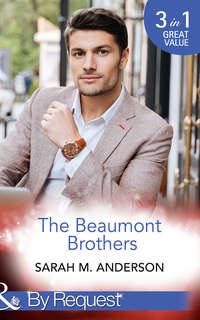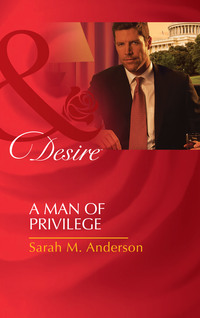
Полная версия
The Nanny Plan
She grinned, a small curve of her lips over the edge of her cup. That grin did something to him—made him feel more sure of himself. Which sounded ridiculous but there it was. “Did it work? The trap, that is.”
Nate smiled back. He was terrible about negotiations with members of the opposite sex. Money, however, was something he’d learned to negotiate. And the fact that this lovely young woman wasn’t playing coy—wasn’t acting like he’d gotten used to women acting around him—only made him more comfortable. Everything was out in the open. He could handle this kind of interaction. “That depends.”
Her eyes widened slightly and a flash of surprise crossed her face. It made her look...innocent. Sweet, even. “Upon?”
“Tell me about your charity.”
She exhaled in relief. It wasn’t a big gesture, but he saw it nonetheless. He wondered what she’d thought he would ask. “Of course. One Child, One World is a registered 501(c) charity. We keep our overhead as low as possible.” Nate sighed. He hated the boring part of charity work. It was, for lack of a better word, boring. “Approximately $0.93 of every dollar donated goes to school supplies...” her voice trailed off. “Not the right answer?”
He sat up a little straighter. She was paying attention to him. He’d be lying if he said it wasn’t flattering. “Those statistics are all required as part of the grant application process,” he replied, waving his hand. “The lawyers insisted. But that’s not what I wanted to know.”
She raised a strong eyebrow and leaned toward him. Yes, he had her full attention—and she had his. “You asked about my charity.”
Oh, yeah—her words were nothing but challenge. This was not a woman telling him whatever he wanted to hear. This was a woman who would push back. Even though he had the money and she had a very cheap coffee, she’d still push back.
That made her even more interesting.
And as long as he kept thinking of it in terms of power and money—instead of noting how pretty she was and how she was looking at him and especially how he was no doubt looking at her—he’d be just fine.
“Tell me about why a young woman would start an organization to get school supplies into kids’ hands. Tell me about...” You. But he didn’t say that because that would cross the line of business and go into the personal. The moment he did that, he’d probably start flailing and knock the coffee into her lap. “Tell me about it.”
“Ah.” She took her time sipping her coffee. “Where did you grow up? Kansas City, right?”
“You’ve done your homework.”
“Any good trap is a well-planned trap,” she easily replied, a note of satisfaction in her voice.
He nodded his head in acknowledgment. “Yes, I grew up in Kansas City. Middle-class household. Father was an accountant, mother taught second grade.” He left out the part about his brothers. “It was a very comfortable life.” He hadn’t realized how comfortable until he’d made his money—and started looking at how other people lived.
Trish smiled encouragingly. “And every August, you got a new backpack, new shoes, new school clothes and everything on that list teachers said you had to have, right?”
“Yes.” He took a calculated risk. Just because she had black hair and skin the color of copper and was running a charity that helped American Indians on reservations didn’t necessarily mean she was a Native American herself. But there was no such thing as coincidence. “I take it you didn’t?”
Something in her face changed—her eyes seemed to harden. “My sixth-grade teacher gave me two pencils once. It was all she could afford.” She dropped her gaze and began to fiddle with one of her earrings. “It was the best present I ever got.”
Nate, being Nate, didn’t have a smooth comeback to that. In fact, he didn’t know what to say at all. His mom, Susan, had worked as a teacher, and she’d occasionally talked about a student who needed “a little extra help,” as she put it. Then she’d fill a backpack with food and some basics and that was that. But that was before she’d had to stay home with Nate’s brother Joe full-time.
“I’m sorry to hear that,” he said quietly. Once, he hadn’t believed there was a world where a couple of #2 pencils were an amazing gift. But now he knew better.
Her gaze still on her coffee, she gave him a quick, tight smile. He needed to move the conversation forward. “So you’re working to change that?”
“Yes. A new backpack full of everything a kid needs in a classroom.” She shrugged and looked back at him. The hardness fell away. “I mean, that’s the first goal. But it’s an important first step.”
He nodded thoughtfully. “You have bigger plans?”
Her eyes lit up. “Oh, of course! It’s just the beginning.”
“Tell me what you’d do.”
“For so many kids, school is...it’s an oasis in the middle of a desert. The schools need to open earlier, stay open later. They need to serve a bigger breakfast, a bigger lunch and everyone needs an afternoon snack. Too many kids aren’t getting regular meals at home and it’s so hard to study on an empty stomach.” As she said this last point, she dropped her gaze again.
She was speaking from experience, he realized. Two pencils and nothing to eat at home.
“Indians on the rez love basketball and skateboarding,” she went on. “Having better courts and parks on the school grounds could keep kids from joining gangs.”
“You have gang problems?” He always associated gangs with inner-city drug wars or something.
She gave him a look that walked a fine line between “amused” and “condescending.” “Some people have perverted our warrior culture into a gang mentality. We lose kids that way and we rarely get them back.”
He thought over her wish list, such as it was. “I haven’t heard anything about computers.”
She paused, then gave him that tight smile again. “It’s the ultimate goal, one that will require far more than ten or even twenty thousand dollars of funding. Most schools don’t have the infrastructure to support an internet connection, much less cloud storage. I want kids to have basic supplies and full bellies before I get to that. You understand, don’t you?”
He nodded. He’d toured some bad schools—mold growing on the walls, windows taped shut to keep the glass from falling out, ancient textbooks that smelled like rot. But what she was describing...
“What is it you want from me, then? Just ten grand?”
The moment he said it, he realized that maybe he shouldn’t have phrased it quite like that. Especially not when Trish leaned back in her chair, one arm on the armrest, the other curled up under her chin—except for her index finger, which she’d extended over her lips as if they were in a library and she was shushing him. She met his gaze full-on, a hint of challenge lurking in her eyes. The air grew tight with tension.
God, she was beautiful and there was something else behind that gaze—an interest in more than just his bank account. He should ask her out. She wasn’t intimidated by him and she wasn’t throwing herself at him. She was here for the money and all her cards were up front, no hiding funding requests behind manipulative sexual desire. Hell. He didn’t meet too many women who could just sit and have a conversation with him.
Except...dating was not his strong suit and he was pretty sure that asking a woman out right after she’d requested a donation would probably cross some ethical line.
Damn.
“Of course, One Child, One World would be delighted with any funding the Longmire Foundation saw fit to disperse,” she said, sounding very much like someone who’d written a few grants in her time.
“How’d you get to be a Woman of the Year?”
“One of my professors nominated me,” she told him. “I didn’t know she was doing it. One day, I’m trying to organize a bake sale to raise a hundred dollars to cover postage back to the rez and the next, I’m being flown to New York and given a lot of money.” She blushed. “I mean, a lot of money for me. I’m sure ten grand isn’t very much to you.”
“I can remember when that much was a lot of money,” he admitted. He winced. That was a totally jerky thing to say and he knew it.
He was about to apologize when she said, “Tell me about your charity,” turning his question back on him.
He regarded her for a second. “Is that another way of asking why I’m giving money away for free?”
“You did go to all that trouble of earning it in the first place,” she pointed out.
He shrugged. “Like I said, I had a comfortable childhood. We didn’t always get everything we wanted—I didn’t get a car for my sixteenth birthday or anything—but we were fine.”
How he’d wanted a car. Brad, his older brother, had a half-rusted Jeep he’d bought with lawn-mowing money that he swore made it a breeze to get a date.
Back then, Nate had absolutely no prospect of a date. He was tall and gangly, with dorky glasses and awful skin. They were still trying to integrate Joe into a mainstream classroom at that point and Nate was mercilessly mocked by his peers. The only possible way he could have gotten a girl was if he’d had a sweet ride to pick her up in.
Alas. No car. No date.
“Anyway,” he went on, shaking his head, “I made that first million and I felt like I’d made it. But a weird thing happened—that million spawned a second million, then a third. And then the buyout happened and now...” He gave her an apologetic smile. “Honestly, what the hell am I going to do with a billion dollars? Buy a country and rule as a despot?”
It wasn’t as if this background was entirely new information—he’d given interviews explaining the rationale for his foundation—but those were formal things with scripted answers, preapproved by his assistant, Stanley.
Right now, sitting here in a coffee shop with Ms. Trish Hunter, it didn’t feel like an interview. It felt like a conversation. An honest one.
Nate nodded toward her shirt. “I bought Superman #1—you know?”
A smile quirked at her lips. “I do know. Didn’t you pay the highest recorded price for it?”
“I did. It was wild—I felt like I was jumping off a cliff, to pay five million for a comic book.”
“Did you at least read it? Or did you lock it up?” The way she asked the question made it clear—she would have read it.
“I read it. Carefully.” He waggled his eyebrows at her, as if he were saying something salacious. She laughed. It was as close to flirting as he got. “With tongs. In a temperature-controlled room.”
Her eyes lit up. “Were you wearing one of those hazmat suits, too?”
“No. Just gloves.” She giggled at the image and he laughed with her. It had been totally ridiculous. “But what else am I going to do with this much money besides buy comic books?”
“You donated a lot to mental-health research,” she said. She was leaning forward slightly, her body language indicating that she was really listening.
“I have a...personal connection to that.” When she waited for more, he added, “I keep my family private. It’s the only way to stay sane in this industry.”
Yes, he had set up an endowment into schizophrenia, depression and bipolar research. That was the public action. The private one had been setting up a trust fund for the care of Joe. Mom was able to stay home full-time with Joe now, and they had reliable home health aides to assist. Nate had tried to give his parents a million dollars or an all-expenses paid trip around the world, but it turned out that peace of mind about their youngest son was all they really wanted.
And after what had happened with Diana...
Nate’s private life stayed private. Period.
“Ah, understood.” She tilted her head. “That explains why there’s no press on it. I wondered.”
He stared at her. Yeah, he expected that she’d done her homework, but it was unusual to have someone admit to digging into his past—and then agree not to discuss it. As the shock of her blunt attitude wore off, he felt himself grinning at her even more. “Thanks. So, you know—I’m rich, I no longer run my own company—what am I going to do with the rest of my life? I set up a fund for my niece, bought my brother a house, took care of—well, I took care of the rest of my family, fended off a few lawsuits. That only left me with about a billion. Giving away the money seemed like something to do. The Longmire Foundation has given away fourteen million dollars and I haven’t even made a dent yet.”
That was the truth. He was making more in interest than he could give away. The simple truth was that her request for a matching grant of ten thousand dollars was the product of about five minutes for him, if that. He could add two or three zeroes to the end of the check and never even notice the money was gone.
“Is that what makes you happy?”
He looked at her funny. Happy? He was rich. He wasn’t the same gangly nerd he’d been in high school. He was a ruthless businessman, a hugely successful one. He owned his own jet, for crying out loud.
But there was something in the way she asked it...
“I’m doing good. That’s what counts.”
“Of course.” She opened her mouth, paused—and then angled her body toward his. Her gaze dropped again, but only for a second. She looked up at him through her lashes. Energy—attraction—seemed to arc between them as he stared at her.
Her eyes were a deep brown, like dark chocolate. Sweet, yes—but much more than that. There was innocence, but now it had an edge to it—an edge that held a hell of a lot of promise.
He leaned forward, eager to hear what she would say—and whether or not it would sound like legal boilerplate or if it would sound like something else.
He leaned right into his coffee and promptly spilled what was left of his grande mocha into her lap.
“Whoa!” she shouted, hopping to her feet. The dark stain spread down her leg.
“Oh, damn—I’m so sorry,” he mumbled. What had he been thinking? Of course she wasn’t going to say something along the lines of “Maybe we should discuss this over dinner.” He grabbed some napkins and thrust them at her. “Here.”
This was terrible. He’d been doing just fine when it’d been a business negotiation, but the moment he hoped it’d go past that—it blew up in his face.
“I’m so sorry,” he repeated. “I’ll pay for the cleaning bill.”
She laughed. And after she’d checked her seat for coffee, she sat down, spread a napkin over her lap, and grinned at him. “Don’t worry about it.”
“But your clothes...” Even now, he could see the droplets of coffee on her shirt.
“I’m used to spills and stains. Don’t worry about it.”
He wasn’t sure if he believed her, but then he met her gaze. It was full of humor, yes—but he didn’t get the sense that she was laughing at him. Just the situation. Clumsy billionaire knocks coffee into her lap.
He had to get out of here before he did even worse damage to her clothes or his pride. “Listen, why don’t you come by my office in two weeks? I’ll have my assistant start the paperwork and we can settle the terms then.” He fished out his card, which just said, “Longmire Foundation,” with the address and email. “And please—bring the dry-cleaning bill. It hurts me to think that I might have ruined your shirt.”
A second too late, he realized he was staring at her chest. The jacket had fallen open a little more. It was a very nice chest.
God, what was he doing? Trying to make this worse? He shook some sense—he hoped—back into his head and handed over the card. “Say, Friday at two?”
“I have to work.” She took the card and studied it. “This is in the Filmore area.”
“Yes. I keep an office close to where I live.” She was still looking at the card. “Is that a problem?”
“No, it’s fine. I just thought you’d be down in the Mission or in SOMA. Close to where all the other tech billionaires hang out.”
He waved his hand. “I like to walk to the office when it’s nice out.” She gaped at him, as if she couldn’t believe a billionaire would stoop to walking on his own two feet instead of being carried on a gold-plated litter by trained elephants. “Truth be told, we’re not some sort of secret billionaire club. And I don’t really have much interest in the constant one-upmanship that happens when you get us all together. I like peace and quiet and a nice view. I like to be a little bit not what people expect.”
That got her attention. She looked up at him, her dark eyes wide and...encouraging?
If she could still look at him after he dumped his drink all over her, then maybe...
She went back to studying the card. “I won’t be able to get there until five. Is that too late?”
“Yeah, that’s fine. I’ll make sure Stanley knows you’re coming.”
“Stanley?”
“My assistant.” Actually, Stanley was more than that—he picked out Nate’s clothes and made sure Nate projected the right amount of geek-cred cool. If only Stanley had been here tonight, no one would have gotten a damp lap.
He’d have Stanley start the due diligence on her charity to make sure her numbers were correct.
She grinned up at him again, as if she wasn’t sure how to process an assistant named Stanley. “I look forward to our meeting.” She stood, crumpling up the napkins and stuffing them into her empty cup. Then she extended her hand. “Mr. Longmire, it has been an honor. Thank you so much for considering my proposal.”
“It’s a worthy cause.” He took her hand in his and tried to shake it, but the feeling of her slender fingers warming his momentarily froze his brain. He wanted to say something suave and sophisticated that let her know he was interested in more than her charity.
He had nothing.
Maybe their next meeting would go more smoothly—in his office, Stanley would be ready to swoop in and save Nate from himself as needed. “And again—sorry about the coffee.”
She waved him off and retrieved her large check from behind the chair. Thankfully, it didn’t seem to be too splattered. “I’ll see you on Friday in two weeks.”
“I’m looking forward to it.” That got him a nice smile, warm and friendly and comforting—like she realized exactly how socially awkward he really was and was rewarding him for doing a decent job.
Nate watched her figure retreat from the coffee shop and disappear into the foggy darkness, the check glowing white. Trish Hunter. Yes, Stanley would have to do some due diligence on her charity. And on the woman herself. Nate wanted to know more about her—a lot more.
He sent for a car to take him home and was picking up the coffee cups—his mother had always taught him to pick up after himself and being a self-made billionaire hadn’t changed that—when his phone rang. Not the chime that went with a message, but the ring of someone actually calling him.
His mother. She was pretty much the only person who called him, anyway. She was too old to learn to text, she said. That was her story and she was sticking to it.
“Hey, Mom,” he said, heading out to the sidewalk.
“Nate? Oh, honey.” She was crying. Nate froze halfway out the door. Instantly, all thoughts of Trish Hunter and large checks and coffee were pushed from his mind.
“Mom? What’s wrong?”
“Nate—oh, God. There’s been an accident.”
“Dad?” Panic clawed at him. His parents were only in their fifties. He didn’t want to lose either one just yet.
“He’s fine. Oh, Nate...we need you to come home. It’s Brad and Elena...”
“Are they okay?” But even as he said it, he knew the answer was no. His mother was crying. Something horrible had happened to his older brother and his sister-in-law. “What about Jane?” When his mom didn’t answer right away, Nate nearly threw up. “Mom—is Jane okay?”
“The baby is fine. We were watching her so they could go out... Come home, Nate. Come home now.”
Dear God in heaven. “I’m on my way, Mom. I’ll be there as soon as I can.” He hung up and called Stanley. This was one of the benefits of being a billionaire. He didn’t have to deal with emergency flights. He had an assistant—and a private jet.
“Stanley, get the plane ready. I need to go to Kansas City. Right now.”
Two
Trish had spent a good deal of time on this outfit. Wearing the Wonder Woman shirt again would be too obvious, even though it had washed clean. Trish had decided to go a little more formal for this meeting. She had on a coral skirt that came to midcalf. She’d paired it with a white shirt that was as crisp as she could get it in a public Laundromat and a denim jacket from Diesel—another major score from the thrift stores. Her only pair of cowboy boots were on her feet. Once they’d been black, but now they were a faded gray. Which was trendy enough, so she figured she was okay.
She was wearing the one good piece of turquoise she had, a teardrop-shaped pendant that hung on a thin silver chain. She’d twisted her hair up into a professional looking knot and had put in a pair of silver hoops that looked more expensive than they really were.
This was her being a business-professional Lakota woman. This was not her dressing to impress a certain billionaire. Not much, anyway.
She didn’t have a cleaning bill to give him and she had the distinctive feeling that he wasn’t going to be happy about that. What could she do? Tell him she needed $1.25 in quarters for the Laundromat?
The skirt had necessitated the bus, however. She hadn’t wanted it to get tangled up in her bike spokes. So, at 5:08—after almost an hour and a half—she finally arrived at his address in the Filmore district.
The Longmire Foundation was on the fourth floor of an austere-looking office building. On the ride up, Trish swallowed nervously. Yes, the conversation with Nate at the coffee shop had been pleasant and encouraging—but who knew what might have changed in the past two weeks? Because of how the event had played out in the press, she was worried that he might have changed his mind. The news reports had caught the look he’d given her when he’d asked her to meet him backstage and rumors about something else happening backstage had already started.
Trish had fielded a few phone calls, which was good. Sort of. Yes, any attention she could draw to One Child was good attention—but the quotes reporters had been looking for were much more along the lines of whether or not a romance had sparked.
Which it hadn’t. Really.
So Nate Longmire was tall, built and twice as handsome in person as he was in photographs. So there’d been something between them—something that she hadn’t been able to stop thinking about since the moment she’d walked out of that coffee shop. It’d almost been like...like she’d belonged there, with him. For just a little bit, he hadn’t been some unreachable Boy Billionaire and she hadn’t been a dirt-poor American Indian. He’d just been a man and she’d just been a woman and that was—well, it was good. With the potential to be even better.
And that potential? That’s what she’d been dreaming about almost every single night for the past two weeks.
Well. They were just dreams. And she needed to stick with reality.
And the reality of the situation was that Nate was not her type. She didn’t have a type, but whatever it might be, a Boy Billionaire clearly wasn’t it. She would probably never have a total of five million dollars in her entire life—and he was the kind of guy who spent that on a comic book.
At least the Wonder Woman shirt had done its job, she figured. Now, in her fancy clothes, it was time to do hers.
She’d done her best to avoid answering any questions about her supposed involvement with Nate Longmire by throwing out every single stat she could about poverty on Indian reservations and how even a five-dollar donation could make a difference. In the end, unable to get a juicy quote out of her, the press had left her alone.
She’d noticed that, in any report, whether online or on television, Nate Longmire had always been “unavailable for comment.” She didn’t know if that was a good thing or not.
Trish found the right door—suite 412, The Longmire Foundation written in black letters on the glass—and tried the doorknob, but it was locked. A growing sense of dread filled her as she knocked.








